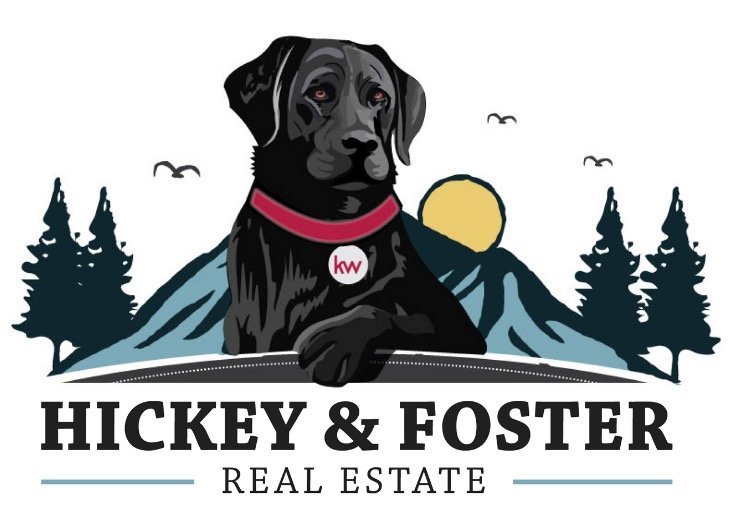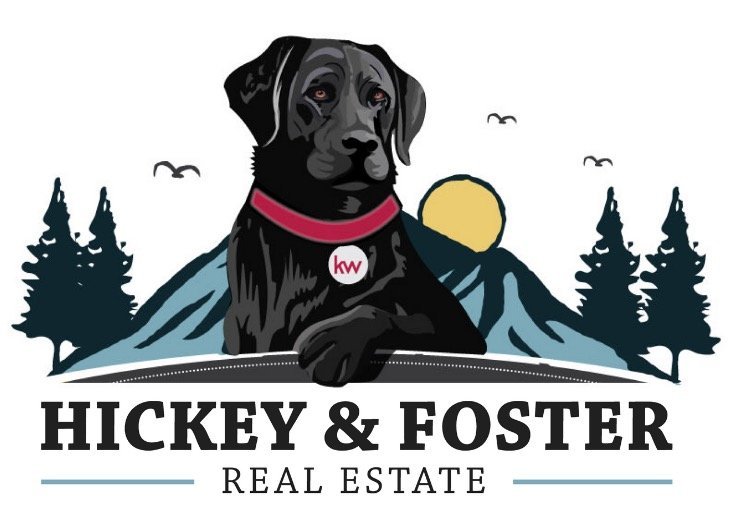Language of Real Estate
On this page, we review and define real estate vocabulary, from the common to the complicated, and if you have any questions about these terms and whether they apply to you, then please contact us.
Amortization
The process of gradually paying off a mortgage loan through regular payments, which include both principal and interest.
Appraisal
An assessment conducted by a professional appraiser to determine the value of a property.
Lenders require an independent assessment of the value of the home you are buying before agreeing to finance the purchase.
Closing Costs
The fees and expenses paid by the buyer and seller during the final stages of a property sale, including but not limited to loan origination fees, appraisal fees, title insurance, and legal fees.
Simply defined, these fees are paid at the time of closing to complete a real estate transaction.
Often, we are asking “What will my closing costs be?” This is where it is important to speak to your agent and lender for updated information on this. No two closings are the same! If you have bought or sold, what was part of your closing costs?
Closing Disclosure
A document provided to the borrower before closing that details the final terms of the mortgage, including loan terms, closing costs, and other financial aspects.
Contingencies
Conditions that must be met for a real estate transaction to proceed, such as home inspections, loan approval, or the sale of an existing property.
Contingent Offer
A purchase offer that is dependent on certain conditions being met, such as the sale of the buyer's existing home or the completion of satisfactory inspections.
Deed
A deed is the official “proof of ownership” document in the real estate world. It’s a legal agreement that transfers the property rights from one party to another. So, when you purchase a property, you’ll receive a deed that confirms you’re now the proud owner.
The deed includes vital information, such as the names of the buyer and seller, a detailed property description, the purchase price, and the date of transfer. It’s an essential piece of paper that protects your rights and interests as a homeowner.
Down Payment
The initial payment made by the buyer towards the purchase of a home, typically expressed as a percentage of the total purchase price.
Earnest Money
A deposit made by the buyer to demonstrate serious intent to purchase a property, typically held in escrow until closing.
Equity
The value of a homeowner's interest in a property, calculated by subtracting the outstanding mortgage balance from the property's market value.
Escrow
Escrow is a legal arrangement in which a third party temporarily holds money or property until a particular condition has been met (such as the fulfillment of a purchase agreement).
It’s used in real estate transactions to protect both the buyer and the seller throughout the home buying process. Throughout the term of the mortgage, an escrow account will hold funds for taxes and homeowner’s insurance.
Fiduciary Duty
A fiduciary duty is a legal and ethical obligation that requires real estate professionals, such as agents and brokers, to act in the best interests of their clients. This responsibility includes duties of loyalty, care, disclosure, obedience, and confidentiality, ensuring that the professional prioritizes the client’s needs and protects their interests during transactions.
Fiduciary duty helps to establish trust and transparency between clients and real estate professionals.
Gap Loan
A gap loan is a financial term that refers to a type of short-term loan designed to bridge the gap between two larger financial transactions, typically in the context of real estate.
The loan uses the equity in the current home as collateral to provide the necessary funds for the down payment or other expenses. Once the existing property is sold, the proceeds are used to repay the gap loan.
Home Inspection
A professional assessment of a property's condition, including its structural integrity, systems, and potential issues, conducted before the purchase.
Homeowners Association (HOA)
An organization that sets and enforces rules and regulations for a community or condominium complex, with associated fees for maintenance and communal amenities.
HUD
HUD stands for the U.S. Department of Housing and Urban Development, which is a federal agency responsible for overseeing various housing and community development programs in the United States. The department plays a crucial role in ensuring there is access to safe and affordable housing options and promoting community development initiatives.
By promoting affordable housing, supporting community development, and ensuring fair housing practices, HUD plays a vital role in improving the quality of life for individuals and communities across the United States.
Inspection Fee
A fee paid to determine the present physical condition of the home, required by the lender in order to supplement the information contained in the appraisal report.
The inspection fee might seem like an extra expense, but it’s a small price to pay for peace of mind. A professional inspection can uncover hidden issues, saving you money and headaches in the long run.
Joint Liability
Joint liability refers to a legal arrangement commonly used when two or more individuals decide to purchase a property together, such as a house or commercial building.
You all share both the benefits and risks equally. Whether it’s the mortgage payments, property taxes, maintenance costs or any legal issues, everyone involved is accountable for fulfilling these responsibilities together.
Kit Home
A kit home is an innovative and cost-effective housing solution that offers a DIY approach to home construction. Also known as prefab or pre-cut homes, these beauties come with pre-manufactured building components. Think of it as a giant puzzle where all the pieces fit perfectly together to create your dream abode.
Lien
A lien is like a legal claim that someone has over a property, usually due to an unpaid debt or obligation. It’s a way for creditors to ensure they have a right to the property’s value if the owner doesn't fulfill their financial commitments. Liens can impact property sales, making it important to clear them before transferring ownership.
Mechanics’ Lien
Here’s the lowdown on how it works: When a property owner fails to settle outstanding payments for work done, a Mechanics’ Lien can be filed against the property. This lien becomes a public record, which can make selling or refinancing the property more challenging for the owner. It’s a way to ensure that all parties involved in the property’s improvement are rightfully compensated.
Mortgage (Adjustable-rate)
A type of mortgage loan with an interest rate that can change over time based on market conditions, often resulting in fluctuations in monthly mortgage payments.
Mortgage (Fixed-rate)
A mortgage loan with a constant interest rate throughout the entire term, ensuring predictable monthly mortgage payments.
Note
In the realm of real estate financing, a “Note” is essentially a written promise. It’s a legally binding document that spells out the terms of the loan agreement between a borrower (that’s you, the homeowner-to-be) and the lender.
Origination Fee
An origination fee is a common term in mortgage lending. It’s essentially a fee charged by a lender to cover the cost of processing a loan application. Think of it as the cost of getting your mortgage up and running.
Pre-approval
A lender's initial assessment of a borrower's creditworthiness and ability to obtain a mortgage loan.
A pre-approval is like your golden ticket to the world of home-buying. It’s a crucial step where a lender evaluates your financial situation and determines how much they’re willing to lend you for your home purchase.
A pre-approval isn’t a guarantee of a loan; it’s a conditional commitment based on your current financial status. Be mindful of your financial decisions during your home search!
Private Mortgage Insurance
Insurance that protects the lender in case the borrower defaults on the mortgage and is typically required for borrowers with a down payment of less than 20%. Private mortgage insurance is also referred to as PMI.
Quitclaim Deed
A Quitclaim Deed is a legal document used to transfer interest in real property from one party (the grantor) to another (the grantee). What sets it apart from other deeds is that it makes no guarantees about the grantor’s ownership interest or any potential liens or encumbrances on the property. It essentially says, “I’m giving up any claim I have on this property – no warranties included.”
Rate Lock
A Rate Lock is like a financial shield. It’s an agreement between you and your lender that locks in your interest rate for a set period (usually 15, 30, 45 or 60 days). Even if rates change, yours stays put!
Second Mortgage
A second mortgage lets you tap into your home's equity to access extra cash for big dreams, like renovations! How it works:
• You borrow against the equity you've built up in your home.
• Flexible repayment options.
• Potential tax benefits!
Title
A legal document that establishes ownership of a property.
Title Search
A title search is like peeling back the layers of history on a property. It's the process of investigating the chain of ownership and legal history associated with a piece of real estate. This means digging into public records to uncover crucial information such as past owners, liens, mortgages, easements, and any other claims or restrictions that might affect the property.
Underwriting
Underwriting is the meticulous investigation conducted by lenders or investors to determine the financial viability of a real estate deal. Think of it as Sherlock Holmes donning a magnifying glass, scrutinizing every detail to ensure a deal is solid and secure.
Valuation
Valuation is like the heartbeat of real estate. It’s the art of determining the market worth of a property. It helps you make informed decisions - whether you’re buying, selling or investing. It sets the stage for negotiations, loans and even your overall financial strategy!
Walk-Through
The Walk-Through is your chance to make sure everything’s A-OK before sealing the deal on your new home. You’ll ensure that the property is in the same condition as when you made the offer.






